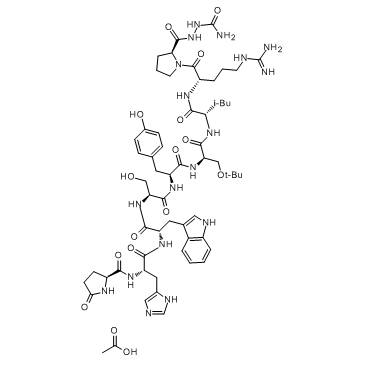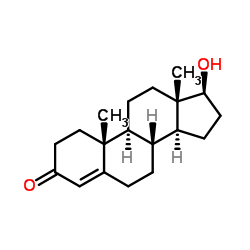| 结构式 | 名称/CAS号 | 全部文献 |
|---|---|---|
 |
醋酸戈舍瑞林
CAS:145781-92-6 |
|
 |
睾酮
CAS:58-22-0 |
|
 |
醋酸亮丙瑞林
CAS:74381-53-6 |